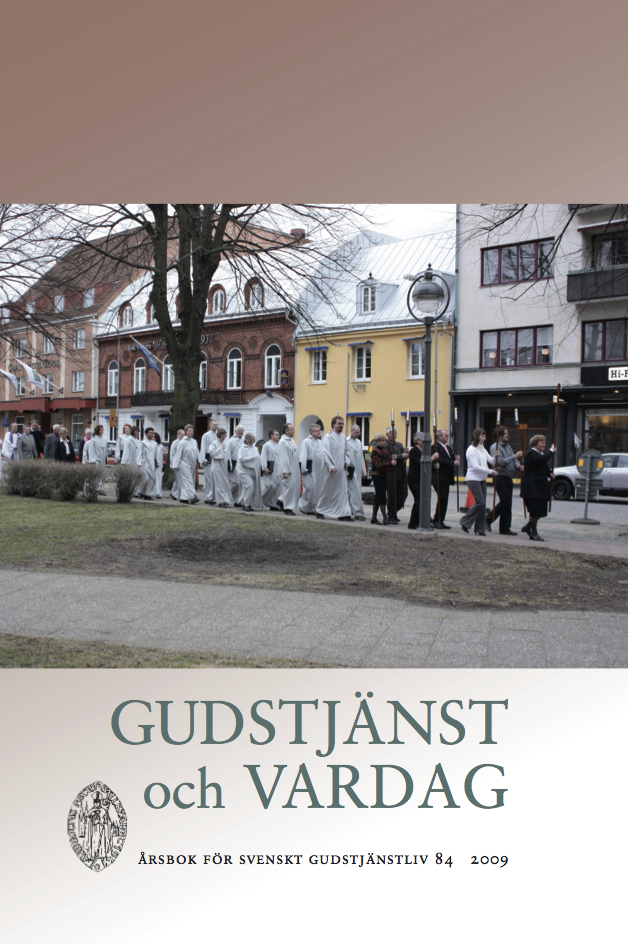När vardagslivet profanerade gudstjänsten. Kyrkomötesdebatten om kungörelseläsningen i högmässan
Abstract
When Secular Life Profanated the Church Service. The Debate in the Church Synod about Announcements in the Sunday Service
The Swedish canon law 1686 decreed that in the local churches, immediately after the sermon in the Sunday service, public announcements have to be read out: not only banns for forthcoming marriages and notifications for the parish, but also announcements from the King in Council (Kungl. Maj:t), the Parliament (riksdagen) and other central governement agencies, the provincial governor (landshövdingen, länsstyrelsen), the rural judicial circuit (domsagan), the district bailiff (kronofogden) and the local constable (länsmannen) etc. Also the general public itself may have announcements from the church’s pulpit of coming auctions sales, lost cattle and other notifications of that kind. For the King in Council this reading by the clergy in the local church was the formal way of promulgating new acts and statutes; the clergy has more or less recitated every addition to the Swedish Code of Statutes(Svensk Författningssamling). The clergyman doing the reading had to sign his name on the document to certify when, where and by whom it had been read.
The fact that church buildings are oversized in Sweden – those built after the Reformation and up to the end of the 19thcentury and originally entirely overloaded with pews – is interpreted as an indication of the interest of the State authorities that everybody in the parish be within earshot for the announcement recitation.
From the middle of the 19th century many clergymen expressed a strong criticism against this sort of recitation. It was considered a profanity of Christian worship and it hid the Word of God from the congregation. From 1849 some of the announcements were read immediately after the service was finished. But the clergy still complained that new laws took hours to read. The aim of this study is to investigate how this criticism was delivered in the Swedish Church Synod(kyrkomötet) from its establishment in 1868 until the middle of the 1900s, when the alteration of length was decided.
The Synod’s increasingly tactical proposals for abolition were reiterated several times, but without gaining sympathy in the Parliament. Not until the 1930s did some members of the Parliament submit a private proposal on this subject and in that way a new law of public announcements was adopted. The very last residuals of this situation were eliminated in 1991, when the parish office no longer had to keep all the annual volumes of the Code of Statutes, Svensk Författningssamling.
The study is focused on the dynamic relationship between the Church Synod and the Parliament and shows that the State authority had to take the initiative in an alteration of this sorts of act. The Synod of the Church of Sweden was ensured the right to formal proposals of amendments in constitutional law, but in this case the right was ignored.
Key words: Swedish canon law, public announcements, local church, Church Synod, Parliament, King in council
Downloads
Publicerad
Nummer
Sektion
Licens
© författarna, Laurentius Petri Sällskapet för svenskt gudstjänstliv samt Artos & Norma bokförlag. Det är tillåtet att kopiera och använda material ur Svenskt Gudstjänstliv för forskningsändamål om källan anges. För övriga ändamål kontakta respektive artikelförfattare samt förlaget. Särskilda restriktioner kan gälla för bildmaterial.


